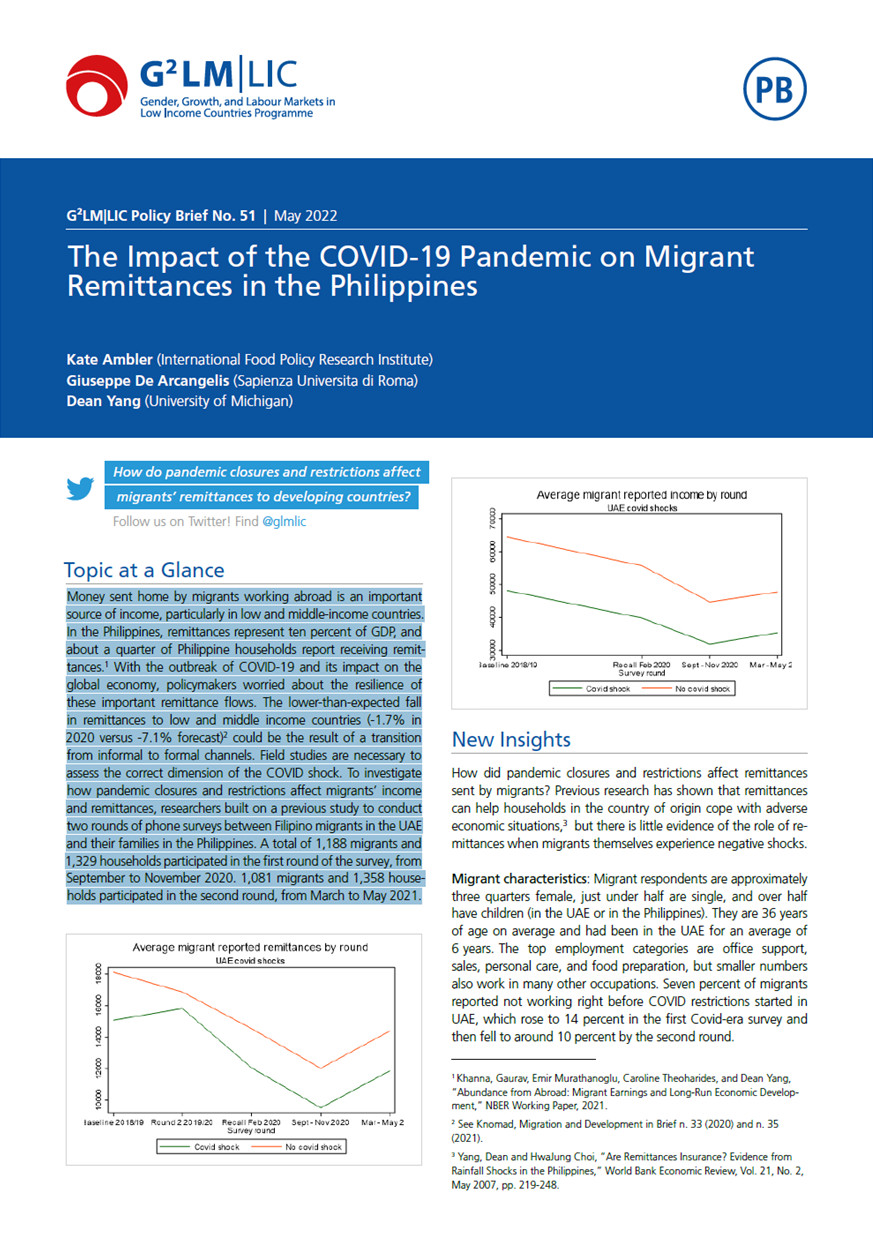Money sent home by migrants working abroad is an important source of income, particularly in low and middle-income countries. In the Philippines, remittances represent ten percent of GDP, and about a quarter of Philippine households report receiving remittances. 1 With the outbreak of COVID-19 and its impact on the global economy, policymakers worried about the resilience of these important remittance flows. The lower-than-expected fall in remittances to low and middle income countries (-1.7% in 2020 versus -7.1% forecast)2 could be the result of a transition from informal to formal channels. Field studies are necessary to assess the correct dimension of the COVID shock. To investigate how pandemic closures and restrictions affect migrants’ income and remittances, researchers built on a previous study to conduct two rounds of phone surveys between Filipino migrants in the UAE and their families in the Philippines. A total of 1,188 migrants and 1,329 households participated in the first round of the survey, from September to November 2020. 1,081 migrants and 1,358 households participated in the second round, from March to May 2021.
